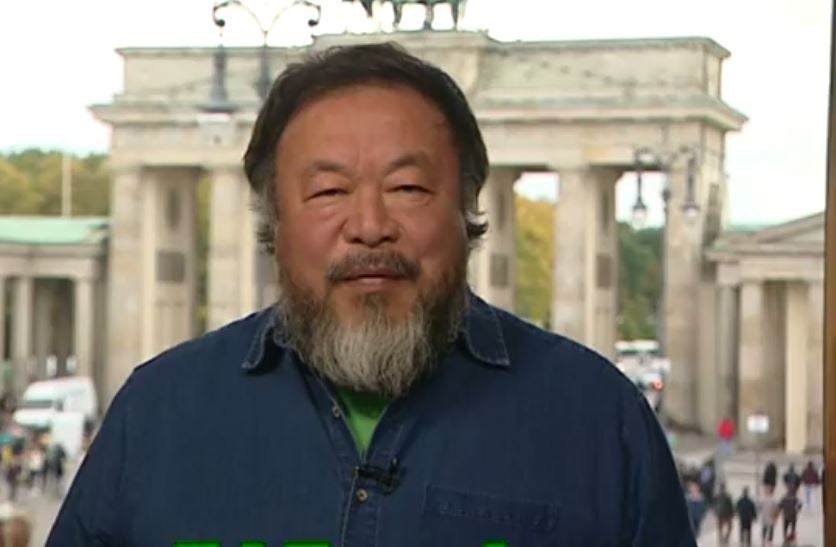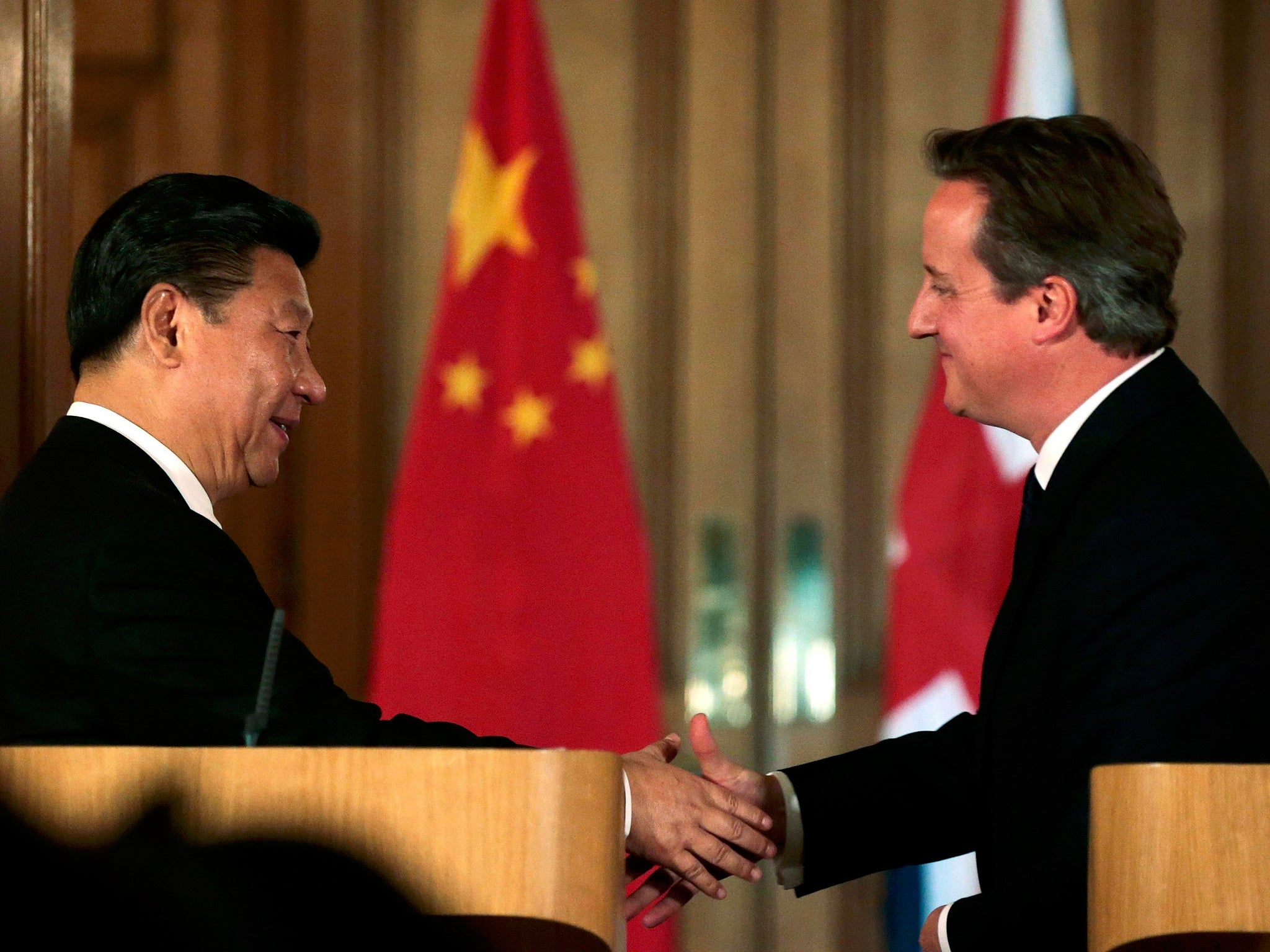Ai Weiwei accuses David Cameron of sacrificing UK's human rights record for Chinese cash
The Chinese artist says Cameron risks 'lowering his standards' over his cosy relationship with President Xi

Your support helps us to tell the story
From reproductive rights to climate change to Big Tech, The Independent is on the ground when the story is developing. Whether it's investigating the financials of Elon Musk's pro-Trump PAC or producing our latest documentary, 'The A Word', which shines a light on the American women fighting for reproductive rights, we know how important it is to parse out the facts from the messaging.
At such a critical moment in US history, we need reporters on the ground. Your donation allows us to keep sending journalists to speak to both sides of the story.
The Independent is trusted by Americans across the entire political spectrum. And unlike many other quality news outlets, we choose not to lock Americans out of our reporting and analysis with paywalls. We believe quality journalism should be available to everyone, paid for by those who can afford it.
Your support makes all the difference.One of the world's leading human rights campaigners has launched a scathing attack on David Cameron - accusing him of sacrificing British values for Chinese cash.
Ai Weiwei accused the Prime Minister is lowering Britain's standards on human rights and its "essential values" by agreeing billions of pounds worth of trade deals during President Xi Jinping's state visit to the UK.
He warned Britain would not have a "bright future" if it continued to succumb to the might of China's economic power, claiming Mr Cameron risked sacrificing Britain's strong leadership on human rights for the "short term gain" of business deals.
President Xi Jinping's four-day visit to the UK has heralded in £30bn of business deals, including an investment by China in a new nuclear power station at Hinkley Point in Somerset.
However Mr Cameron has come under fire from MPs and human rights campaigners who accuse him and George Osborne of ignoring China's poor record on human rights in their determination to secure investment.
Under President Xi's leadership, more than 250 human rights activists have been imprisoned as he presides over what Amnesty International called the biggest crackdown on human rights in a generation.
“I think the British Prime Minister has had a record on putting human rights aside which is very bad strategy and also is a very bad aesthetics, because this certainly doesn't represent the British people,” Mr Ai told Sky News.
"For British I have to say, if they sacrifice very essential values just for this short-sighted gain in business, this is wrong, this is absolutely lowering their standards and it is not going to have a very bright future...when they see Mr Cameron not put human rights as an issue, (that) will make people very disappointed.”
Mr Ai said China was changing “very dramatically” and its people believed in the democratic movement, but any transformation would only come about with a strong joint effort.
When asked what he would say to Mr Xi if the pair met, he replied “First, I would wish him a good trip.
“I think yes China does need to develop and we do need to have very stable conditions for any kind of development, but this kind of development only can come from respecting the truth, respecting the history, and having strong values...those values can make China have a better future.”
Speaking shortly afterwards, President Xi defended his record, saying China "attaches great importance to the protection of human rights" but added: "We know that there is always room for improvement."

Mr Cameron was challenged about Mr Ai's suggestion in the same press conference. Asked by the BBC whether there was "any price that’s worth paying in order to further our business interests with China," the Prime Minister replied: "I would completely reject the premise of your question that either you can have an exchange with China about the issue of steel or indeed about human rights; or you can have a strong relationship with China which is good for business, investment and growth.
"My argument and my contention of doing five years of this job is that you can have both, indeed you must have both. The stronger our economic, trading, business and other partnerships, the stronger our relationship the more able we are to have the necessary and frank discussions about other issues.
"And it’s those discussions and that relationship that leads to that grater understanding that makes that positive," he added.
Mr Xi’s four-day visit started on Tuesday and will continue tomorrow with a visit to a Buckinghamshire pub for fish and chips with the Prime Minister, before talks at Chequers and dinner with the Camerons.
On Friday, the two leaders will watch Chinese player Sun Jihai being inducted into the National Football Museum.
Join our commenting forum
Join thought-provoking conversations, follow other Independent readers and see their replies
Comments